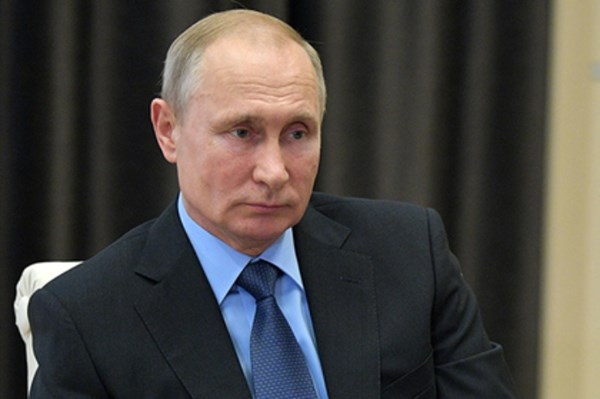Putin signs law allowing Kremlin to fine YouTube and social networks
Russian President Vladimir Putin has approved an amendment to the Code on Administrative Offences, which will allow to fine foreign Internet platforms that allow discrimination against Russian state media.
The document provides for sanctions for non-compliance with the regulations of the Russian media watchdog, Roskomnadzor, which previously received the right to block or slow down access to resources listed as violators by the Prosecutor General's Office and the Foreign Ministry.
According to the Russian authorities, in the last six months YouTube, Twitter and Facebook committed about 20 acts of "discrimination" against Russian publications, such as Russia Today, RIA Novosti, Crimea 24 and Tsargrad.
In accordance with the law, they can be given the status of resources involved in violation of the rights of Russian citizens to freely seek, receive, transmit and disseminate information.
In this case, Roskomnadzor must issue a warning with a demand to “stop illegal actions”.
If it is not implemented, the law signed by Putin introduces fines of 50 to 100,000 rubles for individuals, 200 to 400,000 rubles for officials, 600,000 to 1 million rubles for legal entities.
In the case of repeated non-compliance, fines increase and amount to 200 to 400,000 rubles for citizens, 400 to 700,000 rubles for officials and 1.5 to 3 million rubles for legal entities.
“The bill allowing to block foreign Internet platforms, which can be used against YouTube, Facebook and Twitter, is a forced measure and is based on Russian legislation prohibiting censorship of the media,” explained Ekaterina Larina, director of the State Media Policy Department of the Ministry of Social Affairs, in December last year.
"In our country, the legislation on mass media is without exaggeration the most harmonious and liberal in comparison with different international practices. We have guaranteed media rights. Freedom of the media is guaranteed, censorship is constitutionally prohibited," Larina said.
She said the behavior of foreign internet platforms is "beyond good and evil." They have "usurped access to a global audience" and resorted to practices of "the most cynical censorship and manipulation of public opinion under the guise of countering fake news and propaganda," Larina explained, adding that "public opinion of the global audience" is being manipulated.
